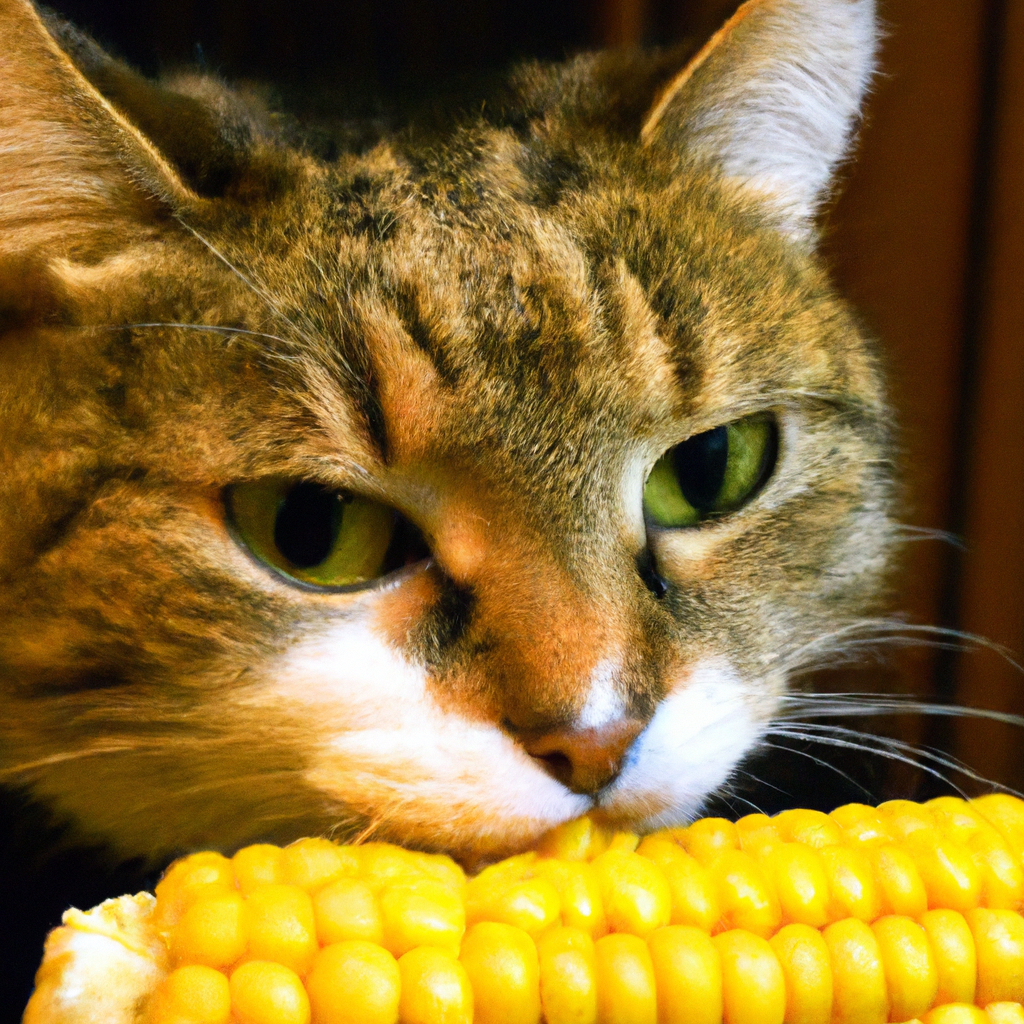If you’ve ever wondered about the culinary preferences of your feline friend, you may have found yourself pondering a common question: “Can cats eat corn?” While corn is a staple in many human diets, it’s important to consider whether it is safe and appropriate for cats to consume. In this article, we’ll explore the potential benefits and risks of feeding corn to cats, helping you make informed choices when it comes to your furry companion’s diet. So, let’s dive into the world of feline nutrition and unravel the mystery of cats and corn.
Can Cats Eat Corn?
Digestive System of Cats
Cats have a unique digestive system that is specifically designed for a carnivorous diet. Their short, acidic digestive tract is optimized for breaking down and absorbing nutrients from animal flesh. Unlike humans and some other animals, cats lack the necessary enzymes to efficiently digest plant-based foods. This means that while cats can technically eat small amounts of corn, it is not an ideal or natural part of their diet.
Nutritional Needs of Cats
Cats are obligate carnivores, which means that they require a diet primarily composed of meat to meet their nutritional needs. Protein is a crucial component of a cat’s diet, providing essential amino acids for growth, muscle maintenance, and overall health. Other important nutrients for cats include essential fatty acids, such as omega-3 and omega-6, as well as vitamins and minerals like taurine, vitamin A, and calcium. These nutrients are most readily available in animal-based proteins, making a plant-based food like corn inadequate for meeting a cat’s nutritional requirements.


Corn in Commercial Cat Food
While corn is not an ideal source of nutrition for cats, it is commonly found in many commercial cat foods. This is often due to its availability and cost-effectiveness as a filler ingredient. Some cat food manufacturers utilize corn to bulk up their products and provide a cheaper source of calories. However, it’s important to note that cats derive little nutritional value from corn and can struggle to digest it properly. Therefore, it’s recommended to choose cat foods with a high meat content and minimal filler ingredients like corn.
Health Benefits of Corn for Cats
While corn may not be nutritionally essential for cats, it does offer some potential health benefits. For example, corn contains small amounts of vitamins such as niacin and folate, which play a role in maintaining a cat’s overall health. Additionally, corn is a good source of dietary fiber, which can aid in digestion and promote bowel regularity in some cats. However, it’s important to note that these benefits can be obtained through other, more appropriate sources that better align with a cat’s nutritional needs.


Potential Risks of Feeding Corn to Cats
Feeding corn to cats can present several potential risks. Firstly, as mentioned earlier, cats lack the necessary enzymes to efficiently digest plant-based foods like corn. This can result in indigestion, gas, and gastrointestinal upset. Additionally, corn is a common allergen in both cats and dogs. Some cats may experience adverse reactions, such as itchy skin, vomiting, or diarrhea, when exposed to corn. Therefore, it’s crucial to monitor your cat closely for any signs of an adverse reaction when introducing corn or any new ingredient into their diet.
Allergies and Corn
Allergies to corn can occur in cats, although they are relatively rare compared to other common allergens, such as fish or chicken. If your cat has a known allergy or sensitivity to corn, it’s essential to avoid feeding them any products containing corn or corn-derived ingredients. Signs of an allergic reaction may include itching, hair loss, ear inflammation, vomiting, or diarrhea. If you suspect your cat may have an allergy to corn, consult with your veterinarian to determine the best course of action.
Feeding Corn to Cats in Moderation
While corn should not be a staple in a cat’s diet, giving them small amounts of corn as an occasional treat is generally considered safe for most cats. However, it’s crucial to ensure that the corn is thoroughly cooked and not seasoned with any additional ingredients that may be harmful to cats, such as salt or spices. As always, moderation is key when introducing any new food into your cat’s diet, including corn.
Alternative Options for Cats
If you’re looking for alternative options to provide your cat with additional fiber or nutrients, there are many safer alternatives to corn. For example, pumpkin and sweet potatoes are excellent sources of fiber and can be safely incorporated into a cat’s diet in small amounts. High-quality, grain-free cat foods that are rich in animal-based protein are also a great choice to ensure your cat’s nutritional needs are met without the use of fillers like corn.
Signs of Corn Intolerance in Cats
While some cats may tolerate corn without any issues, others may develop an intolerance or sensitivity to this ingredient. If your cat experiences any of the following symptoms after consuming corn regularly, it may indicate a problem:
- Vomiting
- Diarrhea
- Abdominal pain or discomfort
- Itchy skin or excessive grooming
- Dull coat or hair loss
If you notice any of these signs, it’s essential to consult with your veterinarian to rule out any underlying health issues and determine the best dietary plan for your cat.
Conclusion
While cats can technically eat corn, it is not a natural or essential part of their diet. Cats have specific nutritional requirements that are best met through a diet primarily composed of animal-based proteins. While corn may offer some health benefits in small amounts, it is not an ideal source of nutrition for cats and can potentially cause digestive issues or allergic reactions. If you choose to feed your cat corn, it should be done in moderation and carefully monitored for any adverse reactions. Ultimately, it’s best to consult with your veterinarian to ensure your cat’s diet is tailored to their specific nutritional needs.

